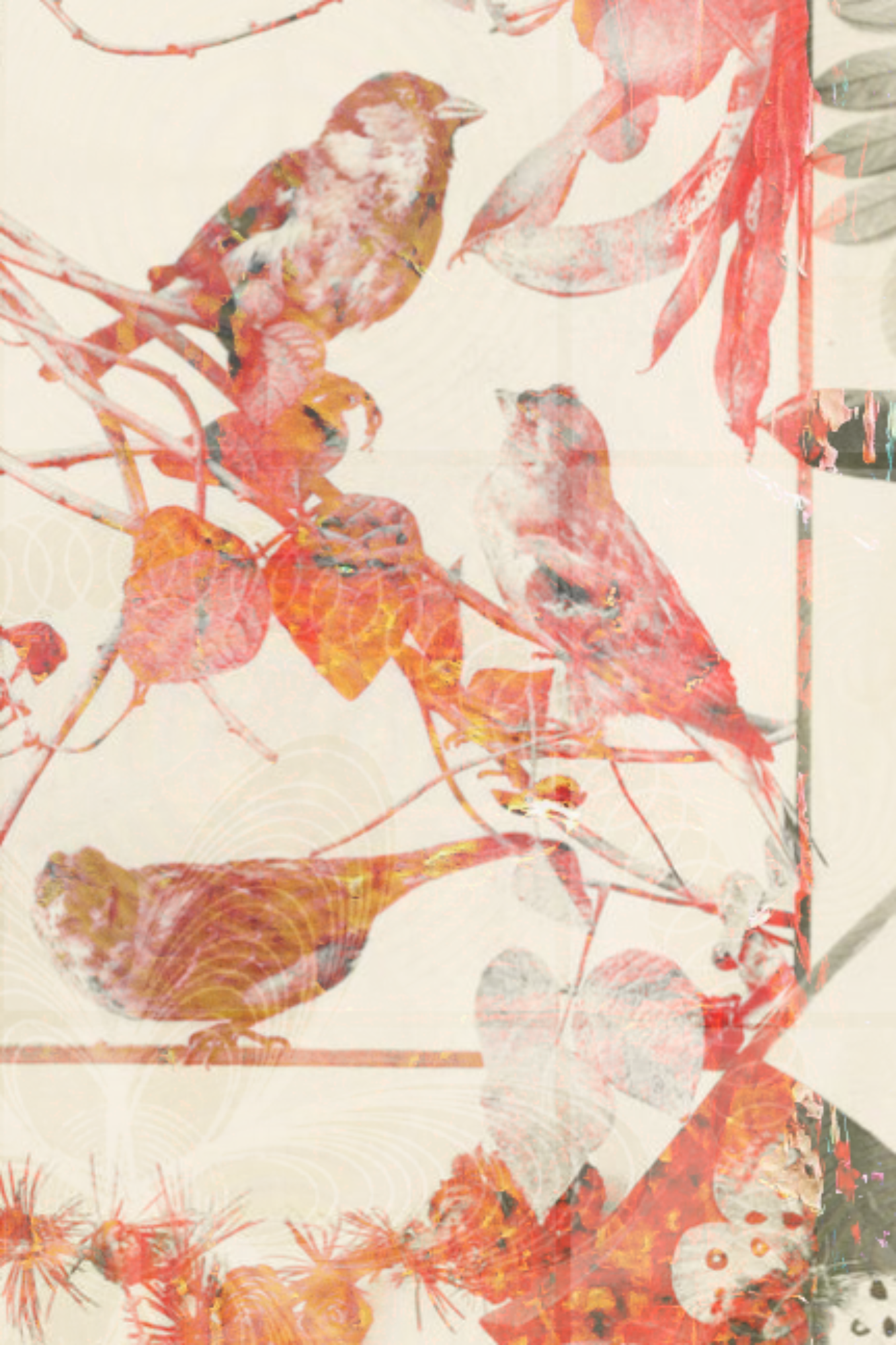Do you have a space dedicated to creative work? What does it look like? If you don’t, what would an ideal workspace look like to you?
I don’t currently have a dedicated space. I write anywhere I can be vertical (horizontal sometimes too, to be fair)! If I did build myself a writing space, the most important piece would be a soft place to land for my most helpful writing partner, my sweet dog who is referenced in the poem contributed to this issue.
Are any movies, music, books, or poetry collections (or any media at all, really) particularly inspiring to you? Are any movies, music, books, or poetry collections (or any media at all, really) particularly inspiring to you?
Arrival (dir. Denis Villeneuve, 2016) has been an important film for my conceptualizing of time and grief. Years ago, I saw Robert Mapplethorpe’s Untitled (Self-Portrait) from 1971 on display at the Pérez Art Museum in my home city of Miami, FL. It’s a polaroid collage with potato sack painted shades of indigo, royal blue, and deep purple. It changed all of my ideas of what self-reflection in art can do and be. An album I routinely return to for soul-soothing is Labi Siffre’s Crying Laughing Loving Lying. I’ve recently fallen in love with Ada Limón’s “Against Nostalgia” and have let it guide me through memories in a new way.
Give us some background on the piece you contributed to this issue.
This piece will act as the front bookending poem of a chapbook in development which is about my experience of familial inheritance and grief. “Death Knell” acts as a self-elegy to past perceptions as well as a memorial to figures and symbols in my family’s history.
Marina Ramil is a Latine lesbian whose work can be found in Stoneboat, South Florida Poetry Journal, OxMag, Astrolabe, and elsewhere. They live in Miami with the alligators and strangler figs.

